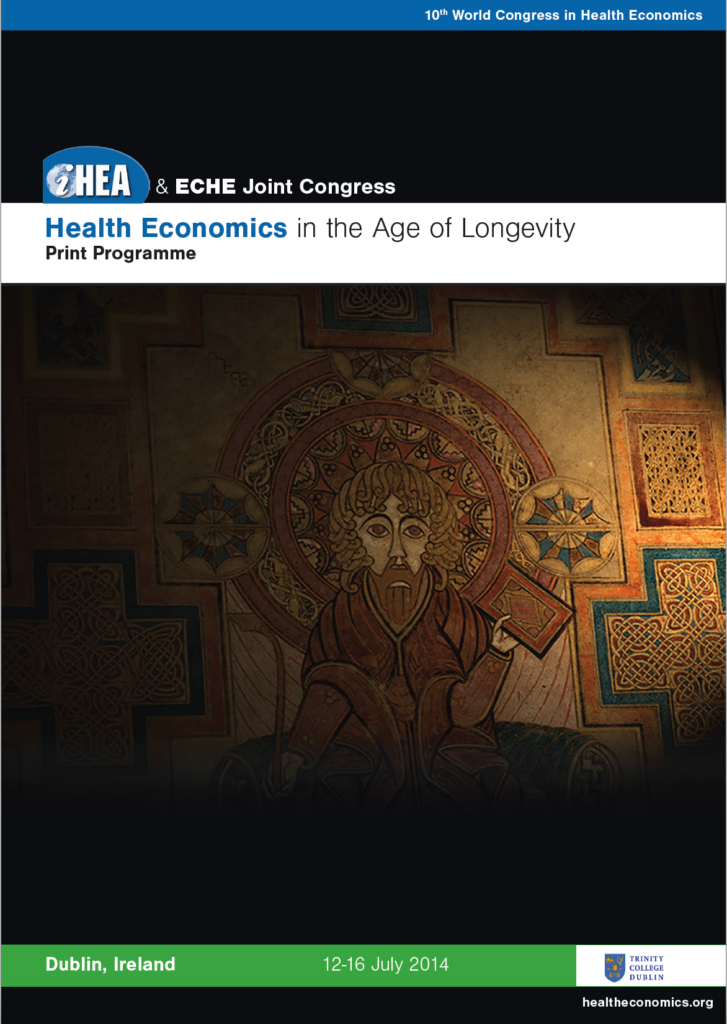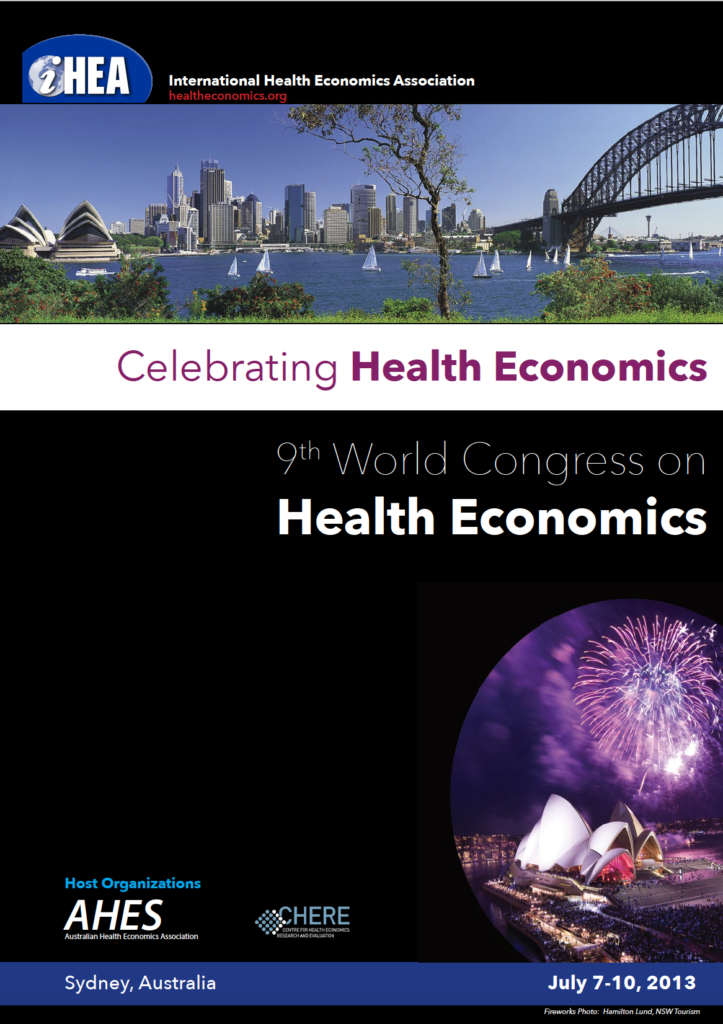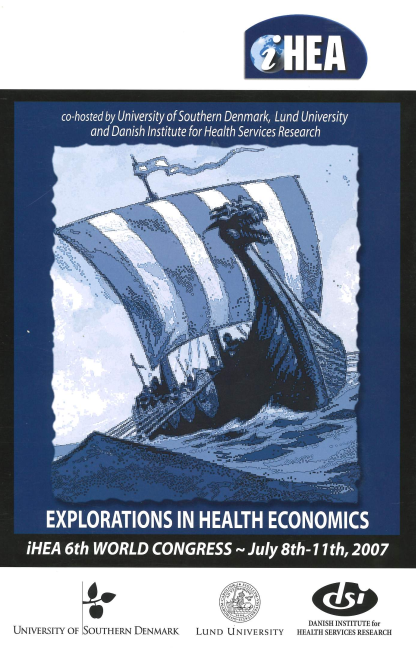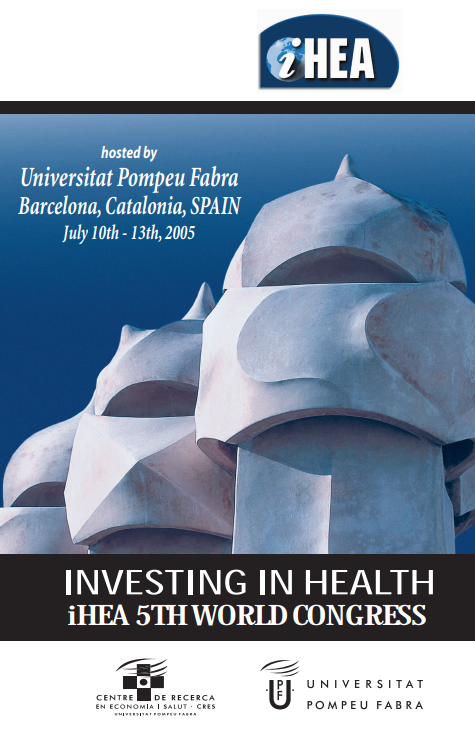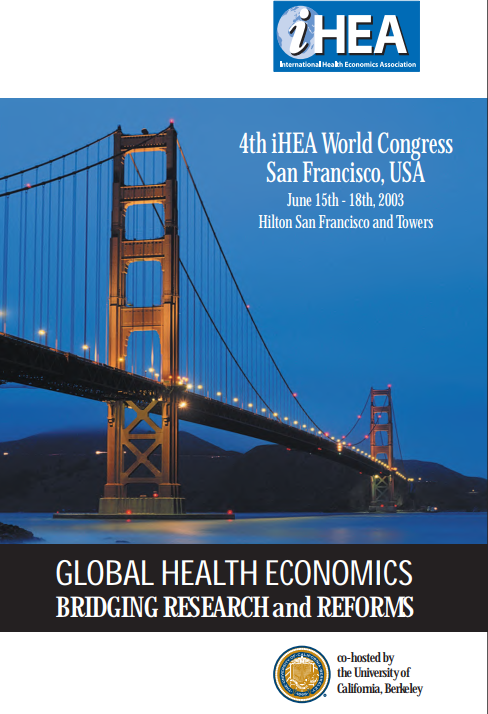Congress
The IHEA congress, held every second year, is the only global forum for health economists to engage around the latest methodological developments, present recent research findings and explore the implications of this research for health policy and practice. The IHEA congress includes presentations across the full spectrum of health economics’ fields.

Upcoming Congress
The 15th IHEA World Congress on Health Economics will be held at the Cape Town International Convention Centre from July 8-12, 2023. The Health Economics Unit of the University of Cape Town, which is the oldest health economics research centre in Africa, will host the congress.
Click here to view the short congress invitation video and preview some of what Cape Town has to offer!
Congress Timeline
August 2022 Abstract submissions open
29 November 2022 Abstract submission closes
Mid December 2022 through January 2023 Abstract review process
February 2023 Program chairs finalize decisions on abstracts
By 8 March 2023 Abstract submitters informed of Scientific Committee decision
31 March 2023 Deadline for registration of those with accepted abstracts
April 2023 Program scheduling
By 8 May 2023 Program released and presenters informed of date & time of session
30 June 2023 Deadline for submission of presentations and e-posters
8-9 July 2023 Pre-congress sessions
Evening 9 July – 12 July Main congress
-
Abstract
Submissions -
Registration
and Participation -
Congress
Program -
Scientific
Committee -
Congress
Sponsors
Abstract Submissions
Abstract submission will open in August 2022.
Given IHEA’s commitment to equality, diversity and inclusion, including ethical collaborative research practices and fair opportunities to present research, we strongly advocate for the presentation of research by local researchers from the country which is the subject of the research.
Two categories of abstracts can be submitted:
- An individual abstract to be considered for inclusion in a contributed oral or poster session, made up of four papers or eight posters on a similar topic.
- An organized session proposal including three to four presentations with one or more discussants (please seek a balance of presenters by gender, career stage and geographic location).
If an organized session proposal is not accepted on review, papers within that session will NOT automatically be considered for acceptance as individual abstracts.
You may submit a maximum of two abstracts where you would be the presenter. So, you could submit a maximum of:
- two individual abstracts;
- one individual abstract and one as part of an organized session; or
- presentations as part of two organized sessions
You will be asked to select a health economics field when submitting an abstract, to assist in assigning your abstract to an expert in your field for peer review and for program organization purposes. Please identify the most appropriate field and sub-fields from the following list before submitting your abstract.
Fields and Sub-fields of Health Economics
- The burden of disease
- Distribution of health
- Valuation of health (including human capital, labour market outcomes, wellbeing)
- Values (preferences, market values)
- Health outcome measurement
- Non-health outcome measurement (including capability, wellbeing)
- Equity in health outcomes
- Social determinants of health (e.g. gender, education, income, wealth, employment, relative deprivation, financial crises, cultural shocks)
- Environmental determinants of health (e.g. pollution, natural disasters)
- Family economics and social interaction
- Non-medical health promotion interventions and policies
- Risky health behaviors (alcohol, tobacco, illegal drugs, opioids, risky sexual behaviors, poor nutrition, etc.)
- Health enhancing behaviors (exercise, sleep, stress managements, etc.)
- Behavioral economics and health production
- Interventions and policies targeting health behaviors
- Demand for health insurance
- Demand for insurance for disability and long-term care
- Demand for health & health care, including for specific services
- Influences on utilization (including gender, insurance coverage, out-of-pocket payments)
- Barriers to access (including informational, financial, gender issues, behaviour biases, preferences)
- Health care labour markets (including education, agency relationships)
- Care setting (including community-based and other primary care, hospitals, long-term care, integrated care, mental health services, hospice, dental services)
- Public health services
- Pharmaceutical products and medical devices
- Digital health (ehealth / mhealth / telehealth)
- Genomics and precision medicine
- Efficient provision of health services
- Competition and market failure in health care supply
- System organisation (including private for-profit, not-for-profit, public, mixed, vertical integration)
- Regulation
- Quality of care
- Rationing (including waiting lists) and priority setting
- Voluntary health insurance, including competition, moral hazard, selection effects, risk variation and regulation
- Mandatory health insurance, including risk-equalization and pool integration
- Fiscal space for government funding of health care
- Financing for Universal Health Coverage, including financial risk protection and reducing pool fragmentation
- Strategic purchasing, including benefits design, contracting, provider payment mechanisms (including pay-for performance), drug pricing
- National health accounts
- Health care spending trends
- Cost effectiveness analysis
- Cost benefit analysis
- Resource use and costing
- Dealing with uncertainty
- Decision thresholds
- Value frameworks
- Modelling in economic evaluation
- Equity in economic evaluation
- Efficiency at the health system level
- Equity in financing, access and quality of care
- Distributional aspects of health policy (socio-economic, gender, geographic, etc.)
- Impact assessment of system wide policy change
- Theoretical developments
- Political economy of health care
- Inclusivity and diversity: decolonization, all forms of discrimination, lived experience
- Teaching health economics
- Cross-cutting methods: Econometric developments
- Cross-cutting methods: Microsimulation
- Cross-cutting methods: Qualitative health economics research
- Cross-cutting methods: Stated Preference
In addition to selecting a primary field from the options above, can select one of these if relevant:
- Maternal and infant health
- Children and young people
- Older people
- Indigenous populations
- End of life and palliative care
- Mental health
- Disability
- Infectious diseases
- Non-communicable illness
- Pandemics
Congress registration and onsite participation
Congress registration will open on 3 March, 2023.
Congress program
The draft program will be available by 8 May 2023.
Scientific Committee
The Scientific Committee (SC) plays a critical role in IHEA congresses given that the program is based on abstracts accepted through a rigorous peer-review process. An open call is issued for IHEA members to express their interest in serving on the panel to review abstracts submitted for each congress. Those who have served on the SC Review Panel for at least two recent congresses are eligible to be considered to serve as Program Chairs. There are two to three Program Chairs for each health economics field, who work together to finalize the abstract acceptances (from the review panel scores) and compile individual abstracts into coherent sessions. To be considered for the position of overall SC Co-Chair, an IHEA member needs to have served as a Program Chair for at least two recent congresses.
Members of the Scientific Committee for the 2023 Congress are listed below.

Ana Balsa

Paula Lorgelly
Hossein Afzali, Flinders University
Olufunke Alaba, University of Cape Town
Hareth Al-Janabi, University of Birmingham
Stefan Boes, University of Lucerne
Heather Brown, Lancaster University
Terence Cheng, Harvard T.H. Chan School of Public Health
Jane Chuma, World Bank & Kenya Medical Research Institute
Susan Cleary, University of Cape Town
John Cullinan, National University of Ireland, Galway
Apostolos Davillas, University of East Anglia
Omar Galarraga, Brown University
Karen Grepin, University of Hong Kong
Mohammad Hajizadeh, Dalhousie University
Danny Hughes, Georgia Institute of Technology
Izabela Jelovac, CNRS (GATE Lyon-St Etienne)
Denny John, Ramaiah University of Applied Sciences
Shiko Maruyama, Jinan University
Céu Mateus, Lancaster University
Paul Mitchell, University of Bristol
Justice Nonvignon, University of Ghana & Africa Centres for Disease Control and Prevention
Sachiko Ozawa, University of North Carolina at Chapel Hill
Stavros Petrou, University of Oxford
Jane Ruseski, West Virginia University
Tracey Sach, University of East Anglia
Kompal Sinha, Macquarie University
Marcia Weaver, University of Washington
Yuting Zhang, University of Melbourne
The review panel will be announced soon.
Congress sponsors
Future Congresses
IHEA releases a call for expressions of interest in hosting a congress three years in advance of that congress.
The call for expressions of interest in hosting the 2027 Congress will be issued in early 2024.
Past Congresses
- 2021 Virtual
- 2019 Basel
- 2017 Boston
- 2015 Milan
- 2014 Dublin
- 2013 Sydney
- 2011 Toronto
- 2009 Beijing
- 2007 Copenhagen
- 2005 Barcelona
- 2003 San Francisco
- 2001 York
- 1999 Rotterdam
- 1996 Vancouver
Coming soon!
Coming soon!
Coming soon!





